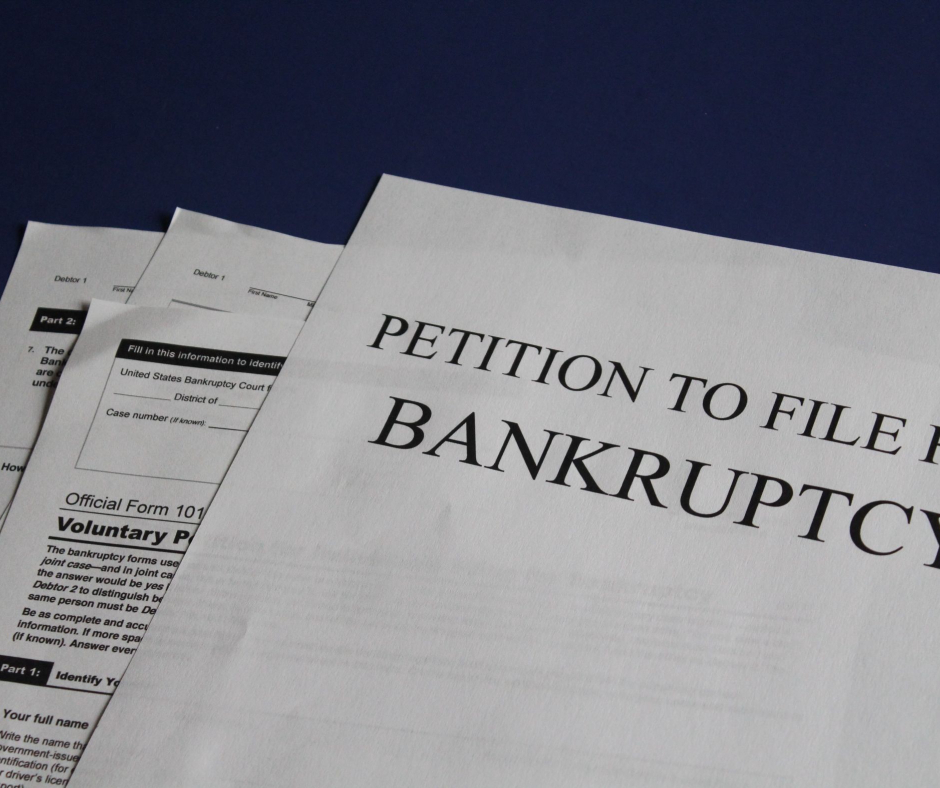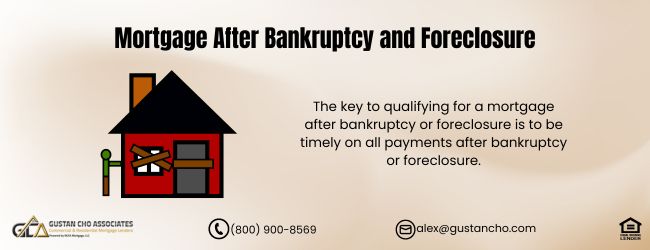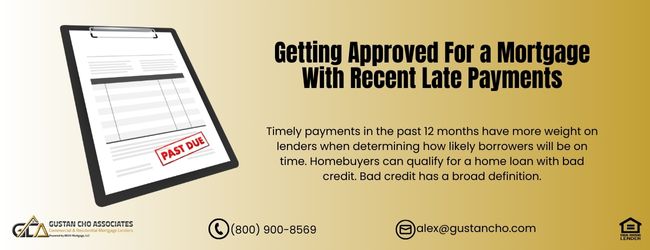How To Get Approved For a Mortgage After Bankruptcy

This article will cover how to get approved for a mortgage after bankruptcy. Homebuyers can qualify for a mortgage after bankruptcy. Dale Elenteny, a senior loan officer and expert in helping borrowers obtain a mortgage after bankruptcy at GCA Forums Mortgage Group, explains about qualifying for a mortgage after bankruptcy as follows:
Government and Conventional mortgage guidelines require a certain waiting period required to qualify for a homebuyer to wait in order to qualify for a mortgage. The waiting period requirements vary between two to four years depending on the mortgage loan program.
The waiting period requirements depend on the type of mortgage program. Every mortgage program has its waiting period requirements. However, all lenders do not want to see any late payments after bankruptcy. Late payments or derogatory after bankruptcy are considered very bad. Lenders classify borrowers with late payments and derogatory after bankruptcy, foreclosure, deed-in-lieu of foreclosure, and short sale as second offenders.
How Lenders View Late Payments And Derogatory Credit After Bankruptcy
Most lenders do not want anything to do with borrowers with late payments or derogatory after bankruptcy: One or two late payments after bankruptcy are not always a deal killer. However, multiple late payments after bankruptcy will become a problem. Lenders consider borrowers with late payments after bankruptcy repeat offenders, says John Strange of Gustan Cho Associates:
Multiple derogatory credit and late payments after bankruptcy is often viewed as a total disregard for credit Most lenders will not want any part of it,
The good news is the team at GCA Forums Mortgage Group has helped countless borrowers with late payments and derogatory credit after bankruptcy. Derogatory credit before filing for bankruptcy is alright. However, ensure a creditor before you file bankruptcy does not come after Post Bankruptcy. This article will discuss and cover Post Bankruptcy and Re-Establishing Credit To Qualify For A Mortgage.
How Lenders View Borrowers When Qualifying For Mortgage After Bankruptcy
Lenders are more than eager to extend credit for a mortgage after bankruptcy. Lenders understand people can go through a financial crisis due to various extenuating circumstances such as loss of employment, business, divorce, medical issues, or other reasons. Alex Carlucci, a senior loan officer at GCA Forums Mortgage Group, explains how to get a mortgage after bankruptcy with late payments:
One or two late payments after bankruptcy is often not a problem if you have other positive credit tradelines to offset the late payment. You cannot have a late payment on a mortgage. To offset the late payment after bankruptcy, you should get multiple secured credit cards to negate the late payments.
Lenders want to see no late payments or derogatory credit after bankruptcy. Lenders also want to see re-established credit after bankruptcy with perfect timely payments. It is not just a matter of waiting out the mandatory waiting period after bankruptcy. More importantly, it is perfect for timely payments and no derogatory credit after bankruptcy. Click Here to qualify for mortgage after bankruptcy
Creditors And Debt Collectors Contacting You After Bankruptcy
All bad non-exempt debts before filing bankruptcy can be wiped out and discharged. Creditors and collection agencies are prohibited from contacting you and trying to collect after filing for bankruptcy. Homebuyers can qualify for an FHA and VA loan during and after Chapter 13 Bankruptcy with credit scores down to 500 FICO. After you file your bankruptcy successfully and have been discharged, there are fines and penalties for creditors and collection agencies who try and collect on accounts included in your bankruptcy Consumers can take action when creditors still contact them after filing for bankruptcy. This holds especially true if they are still contacting consumers after the bankruptcy has been discharged.
How Can You Get Approved For a Mortgage After Bankruptcy
Milwaukee Bankruptcy Attorney James Miller of Miller and Miller Law LLC is one of the top bankruptcy attorneys in Wisconsin. Jamie Miller has helped thousands of consumers file bankruptcy and rebuild credit after discharge. James Miller recommends the following steps to be taken if creditors and collection agencies Post Bankruptcy are approaching consumers:
It is important for consumers to take notes of dates and times of calls/emails/contacts from creditors or collection agencies. Save any and all voicemails. Obtain copies of cell phone bills. Take a photo of the Caller ID. Tell the caller you filed for bankruptcy, your case number, and the date that you filed.
Ensure you have disputed this debt with all three credit reporting agencies if it still shows on your credit report. Call your attorney to inform them of the activity and your documentation. Under no circumstances should you be contacted by older creditors and collection agencies after your bankruptcy. It is important to know your rights in getting a mortgage after bankruptcy. James Miller said the following concerning creditors and collection agencies contacting consumers.
How to find a Lender who can Help Get Mortgage After Bankruptcy
If you’re looking for a loan after bankruptcy, finding a lender or mortgage broker who can help you is crucial. Here are a few examples of finding a lender or broker who can help you get approved for a loan. Check your local banks and credit unions – Some lenders may be more willing to work with you if you already have a relationship with them. Look for lenders or mortgage brokers specializing in loans for people with bad credit – These lenders may be more likely to approve your loan application. Compare interest rates, terms, and fees from multiple lenders – This ensures you get the best deal on your loan. Read the fine print – Read all the terms and conditions of any loan product you’re considering before signing anything.
Debts That Were Not Included In Your Bankruptcy
There were instances when consumers did not include all their debts before filing for bankruptcy. So what happens in cases where the petitioner did not include all of their debts in the bankruptcy petition? Are they liable? Are those debts not discharged? Does the consumer need to pay debts that were not listed? The answer is NO. James Miller, the CEO and Chief Legal Counsel for Miller and Miller LLC Attorneys at Law, explains the following:
You are not liable for any debts that have not been included in your bankruptcy petition as long as the debts are debts incurred prior to your bankruptcy filing. Let the creditor know that you filed for bankruptcy.
If the creditor or collection agencies make a stink about not being listed in the list of creditors on your bankruptcy filing, contact your bankruptcy attorney. Let the bankruptcy attorney know that you have creditors that you forgot to list on the bankruptcy petition. Your bankruptcy attorney will amend your bankruptcy and include the creditors or debts not included in your petition. You are not liable for any debts before your bankruptcy petition. There will be a charge for making an amendment to your bankruptcy.
How To Apply For a Mortgage After Bankruptcy
Applying for a mortgage after bankruptcy can be difficult, but getting approved is possible. With the proper preparation, determination, and research, you can ensure that your application stands out and increases your chances of getting approved. Chad Burns, a dually licensed realtor and loan officer at GCA Forums Mortgage Group, advises the following:
Understanding how different types of loans work and finding options more likely to accept you will help increase your chances of success. Taking all these steps into will give you the best chance at securing a much-needed mortgage after bankruptcy.
It is crucial to know that while you can take positive steps to increase your chances of getting approved for a loan after Chapter 7 bankruptcy, there is no guarantee that any lender will accept you. Always read and get legal advice as needed to understand and clarify the terms and conditions of a mortgage after bankruptcy. Carefully consider your options and apply the principles before signing the dotted line and ensuring it meets your needs. Additionally, if you need financial assistance after filing for bankruptcy, feel free to ask for help from a nonprofit credit counseling agency or other trusted financial expert. By taking the proper steps and researching, you can get approved for a loan after Chapter 7 bankruptcy. Click Here to apply for a mortgage after bankruptcy
Frequently Asked Questions on Getting Approved For a Mortgage After Bankruptcy
Here are some common inquiries (FAQs) regarding the approval if one applies for a mortgage after going bankrupt:
How Long Do I Have to Wait to Make a Mortgage After Bankruptcy?
- Every loan program has its waiting period requirements.
- This is, however, normally determined by the kind of bankruptcy one has declared.
- Typically, it is 4 years for individuals in Chapter 7 bankruptcy on conventional loans.
- There is a two year waiting period to get approved for a conventional loan after Chapter 13 bankruptcy.
- There is two year waiting period to qualify for a VA and FHA mortgage after bankruptcy.
- There is a three year waiting period after bankruptcy to qualify for a USDA loan.
- There is no waiting period after bankruptcy on non-QM loans, however, non-QM loans will require between 10% to a 30% down payment.
Is it Possible to Take Out a Loan Even if My Credit Score is Relatively Low After Bankruptcy?
- Yes, it’s possible, but you may have to pay higher rates.
- The more you work on fixing your credit score and establishing stability in your finances, the better your chances of getting a loan.
What Documents Do I Need to Apply for a Mortgage After Bankruptcy?
In this regard, you would be required to submit standard documents like pay stubs, tax returns, bank statements, and a letter of explanation regarding this confusing bankruptcy process.
What Should You Do to Get a Loan if You Are in Bankruptcy?
For example, some loans such as FHA, VA, and USDA normally require shorter periods of bankruptcy before the loan requirements can be applied.






Responses